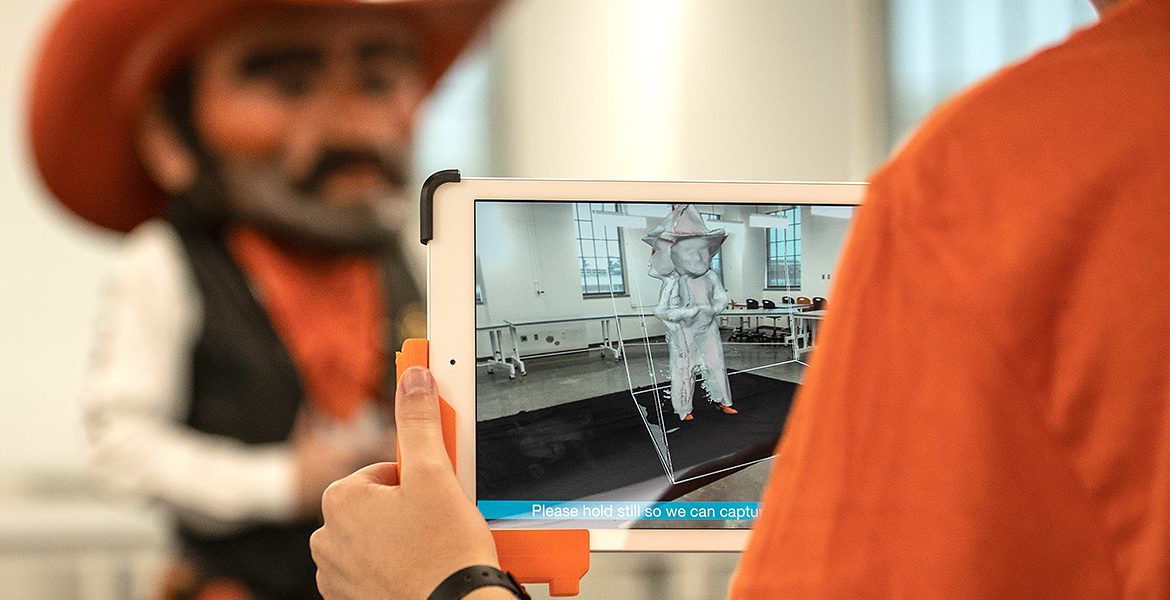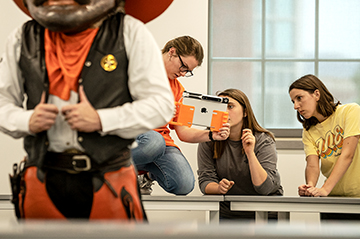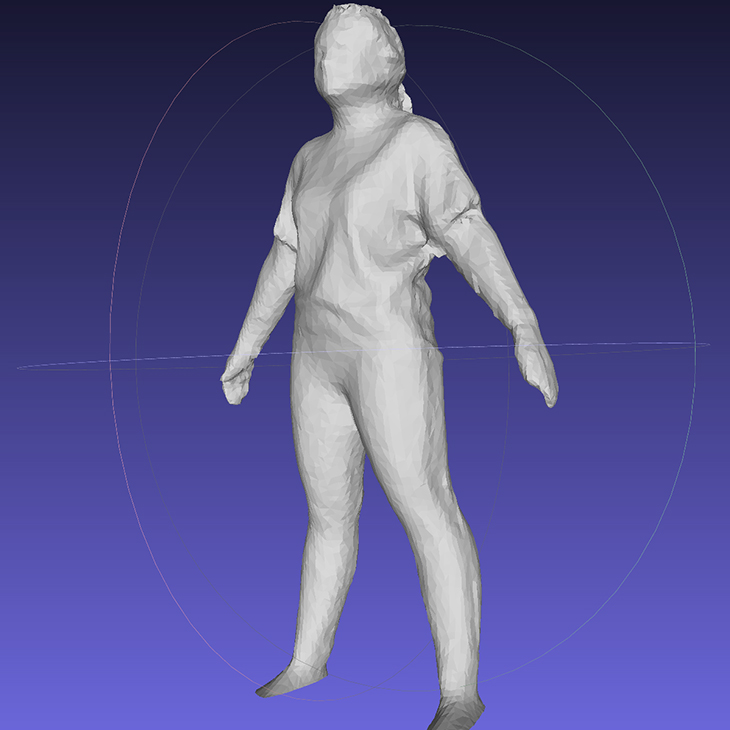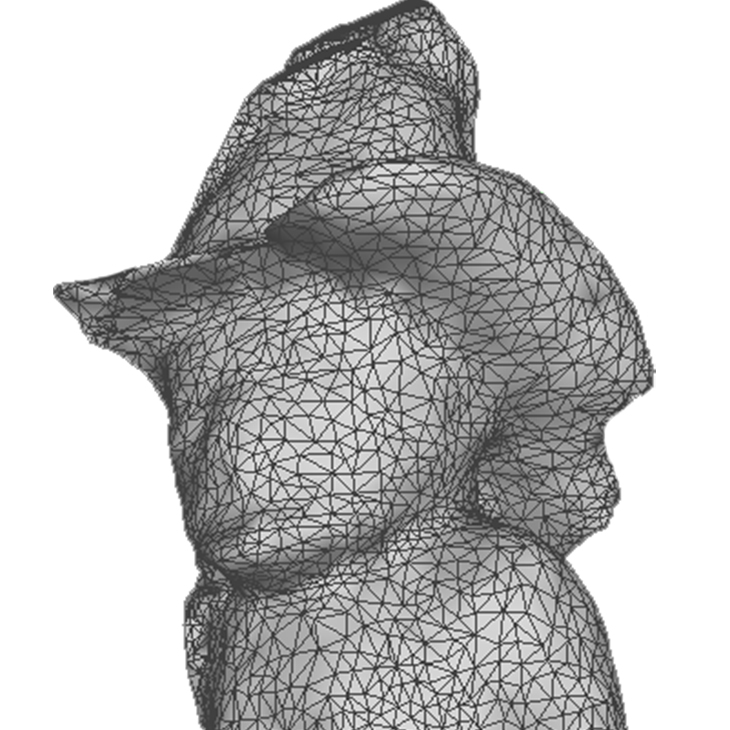
CEAT faculty member investigating ways to mitigate fall risks in pregnant women
Thursday, October 31, 2019
Dr. Aurelie Azoug, an assistant professor in the College of Engineering, Architecture and Technology, is using 3D modeling technology, along with other experimental methods, to investigate ways to mitigate fall risks in pregnant women.
Azoug and her all-female team of undergraduate students are studying the factors associated with increased fall risks in pregnant women as part of a “pilot” grant from the National Institute of Occupation Safety and Health (NIOSH). The grant specifically looks at fall risk in the workplace, but Azoug and her team are using it as a starting point for their research.

The goal of their research, which Azoug started back in June 2018, is to find a simple intervention to implement to mitigate the risk of a pregnant woman experiencing a fall, both in the workplace and elsewhere. Research shows that 25% of pregnant women experience a fall, which quadruples the risk of going into pre-term labor and doubles the risk of fetal fatality. “These numbers didn’t make sense to me. So, I decided to pursue researching ways in which we could mitigate those risks faced by pregnant women,” Azoug said.

The team started by observing women standing still and have now moved on to gait analysis to determine specific factors which may contribute to an increased risk of falling while pregnant. The problem is, measuring pregnant women wouldn’t allow the team to create a uniform group to measure, as the changes a woman goes through during pregnancy are not uniform and effect each individual differently.
So, the team had to recruit members of the student body that met their specifications for the study. The volunteers were fitted with “empathy bellies” and other weights which simulate the weight gained during pregnancy. Each volunteer was asked to participate in five, one-hour sessions in which they were observed and data recorded as to how they adapted to the increase in mass and the effects that had on their posture, stance, etc.
Once the initial round of testing on standing subjects was completed in July 2019, the team received additional funding through a Wentz research grant and an undergrad research scholarship through the college. This will allow the team to conduct research on pregnant women’s gait, as well as gather data on women that are actually pregnant as a means of comparison to their group of volunteers with empathy bellies.
Along with these experiments on live subjects, the research team is also using 3D modeling technology in order to create computer models of subjects. This allows the team to put a “subject” through a wide range of motions to determine if any of those motions make a person more susceptible to falls. The technology is a simple attachment to a tablet and allows the researchers to make scans of a normal person in approximately five minutes.
The team did enlist the help of a well-known figure on the Oklahoma State University campus when they invited Pistol Pete to ENDEAVOR to test the modeling software. The team wanted to use Pistol Pete because of the ease of recognition. When explaining 3D modeling, most people have a basic understanding of what it should look like, however after scanning Pistol Pete it gives people a recognizable frame of reference.

The project has been a joy for Azoug, not just from a research aspect. She is equally excited at the fact that the project is female-centric. “I enjoy being able to be that role model, and show these young women that you can be a head of a lab, you can be an engineer, and still be a female,” said Azoug. “I want them to know that there are many ways to be successful, and you’re allowed to make your own way.”
RELEASE CONTACT: Jeff Hopper | CEAT Marketing | 405-744-2745 | jeff.hopper@okstate.edu
